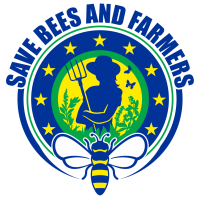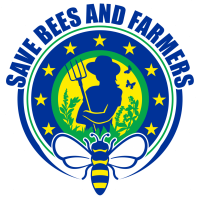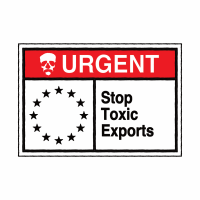Press releases
European Citizens' Initiative calls for constructive negotiations
This year the EU will decide on the re-approval of glyphosate[1], the active ingredient of the most popular and controversial weed killer around the world. Exposure to the herbicide not only poses a risk to human health and a variety of living organisms but it also threatens biodiversity and the future of agriculture. European Citizens have already demanded its ban[2].
By law, European citizens have the right to know why highly toxic pesticides are kept on the market, against scientific advice. The EU Commission refuses to respect the law. they did not respond to an Access To Documents (ATD) requests from PAN Europe. We would like to have a better understanding why cypermethrin, a highly hazardous pesticide, was reapproved by the Commission. this despite the negative opinion from the European Food Safety Authority (EFSA). PAN Europe has decided to bring this transparency issue to the EU Court.
A million-strong petition to ban synthetic pesticides was received by the European Parliament yesterday. Pesticide residues are the highest food safety concern for Europeans, according to recent official polling.
Today, the Court of Justice of the EU (CJEU) published a preliminary ruling on questions posed by the Belgian Administrative Court, following a complaint by PAN Europe, Nature & Progrès Belgium and a Belgian beekeeper. The Court declared that providing derogations for the treatment of seeds with a banned pesticide and their use is not in line with EU law. This ruling shoul put a stop to most derogations given by Member States to banned pesticides.
Pesticides banned by the EU because of harm and danger are still in our food or environment. Many EU countries continue to allow their use. In a new report, PAN Europe exposes the widespread abuse of emergency derogations in the EU.
Les ONGs belge et européenne Nature & Progrès et PAN Europe ont conjointement demandé au Conseil d’Etat belge qu’il suspende immédiatement l’autorisation de deux insecticides à base de Cyperméthrine. Pour les ONGs, ces autorisations ne sont pas conformes à la réglementation européenne sur les pesticides. Les autorités belges exposent systématiquement et sans fondement légal les citoyens et l’environnement à de nombreuses substances particulièrement toxiques pour lesquelles des alternatives existent.
De Belgische en Europese NGO's Nature & Progrès en PAN Europe hebben de Belgische Raad van State gezamenlijk verzocht de toelating van twee insecticiden op basis van cypermethrin onmiddellijk op te schorten. Voor de NGO's zijn deze toelatingen niet in overeenstemming met de Europese verordening inzake bestrijdingsmiddelen. De Belgische autoriteiten stellen de burgers en het milieu systematisch en ten onrechte bloot aan tal van bijzonder giftige stoffen waarvoor alternatieven bestaan.
As the Food and Agriculture Organization (FAO) Council convenes its 171st Session today, PAN (Pesticide Action Network) Europe, calls upon the agency to demonstrate bold leadership on climate action by immediately rescinding its two-year-old agreement with CropLife International, the global association of the world’s biggest pesticide manufacturers.
Ahead of 3 December Global No Pesticides Day, More than 326 civil society organisations from across the globe, institutions and trade unions have published a Joint Statement demanding a ban on the export of hazardous chemicals that are forbidden in the EU. They urge the European Commission not to postpone the promised legislative proposal to achieve this.



